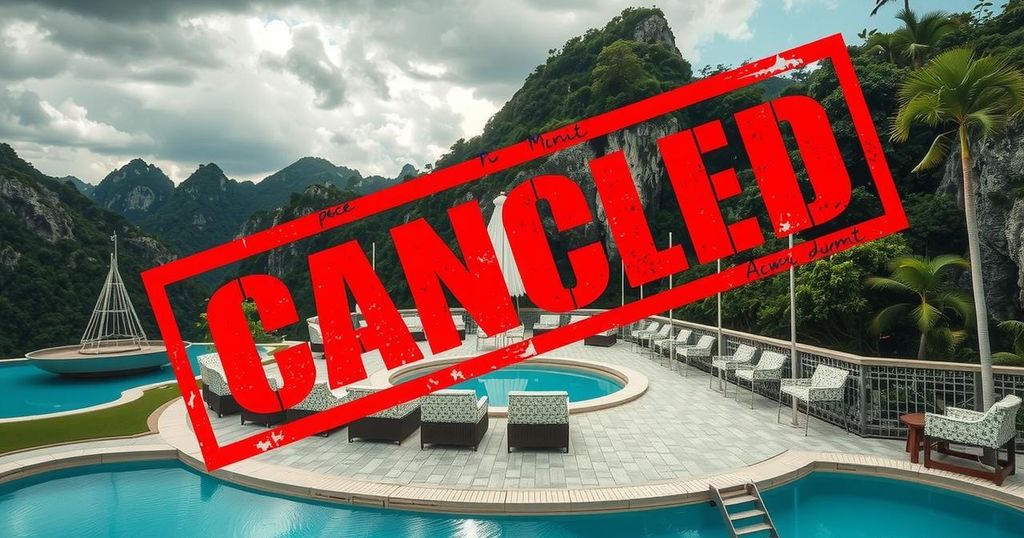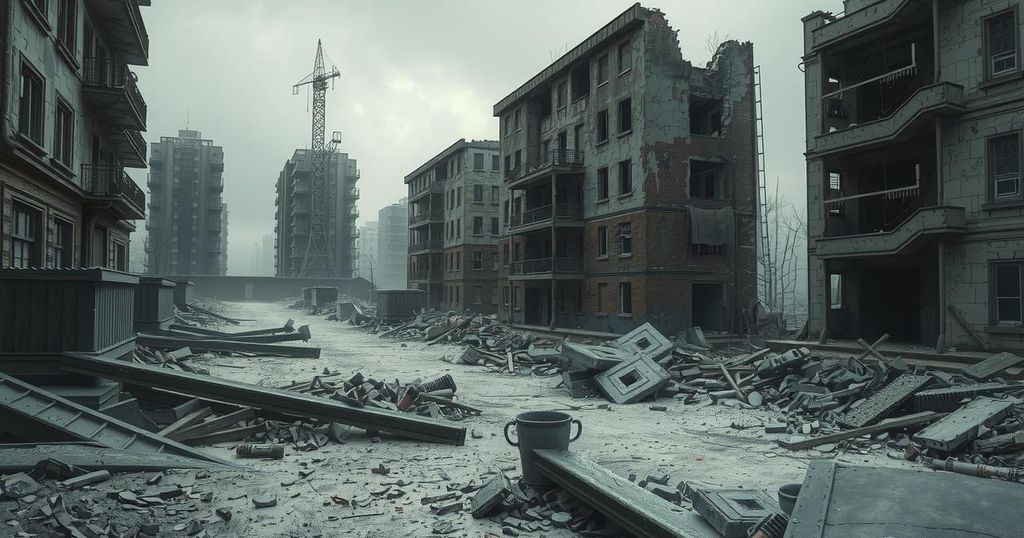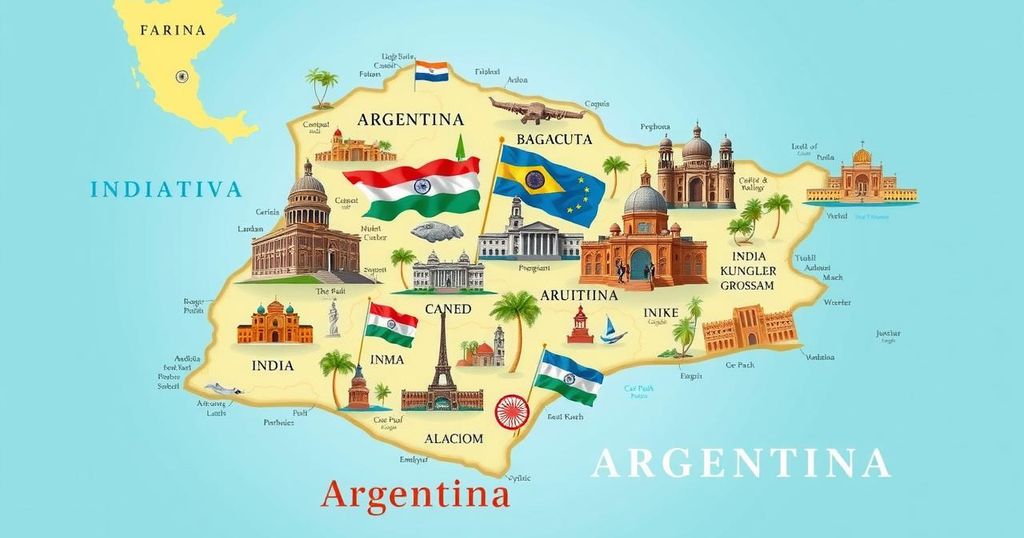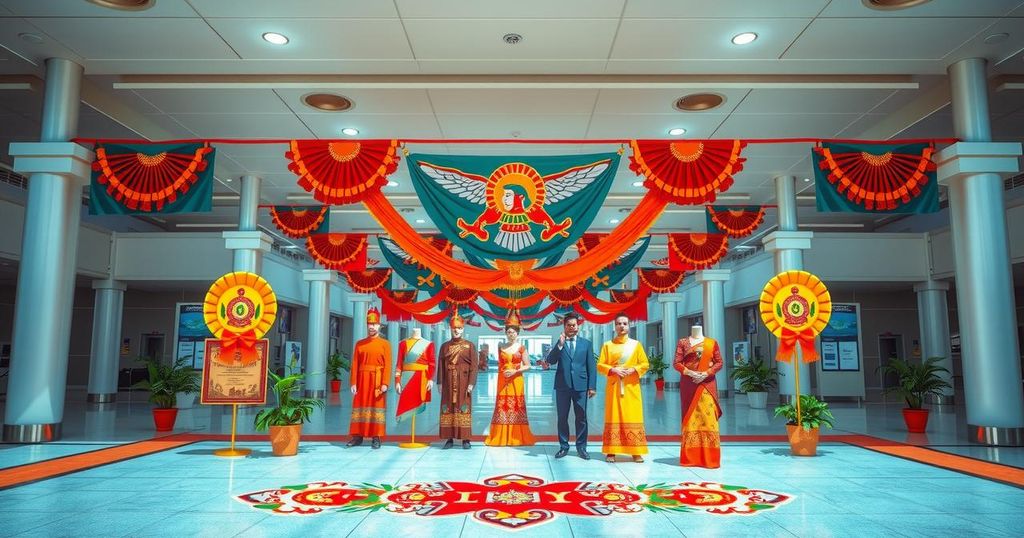Global news
AFRICA, ANGOLA, CONFLICT RESOLUTION, CONGO (KINSHASA), COUP, DEMOCRATIC FORCES FOR THE LIBERATION OF RWANDA, DEMOCRATIC REPUBLIC OF THE CONGO, DIPLOMACY, DR CONGO, DRC, FELIX TSHISEKEDI, JOAO LOURENCO, KI, KINSHASA, LOU, LOURENCO, LUANDA, M23, MINISTRY OF FOREIGN AFFAIRS AND INTERNATIONAL COOPERATION, NORTH AMERICA, PAUL KAGAME, PRESIDENCY, REGIONAL COOPERATION, RWANDA, TSHISEKEDI, UNITED STATES, WEST AFRICA
Leila Ramsay
0 Comments
Cancellation of Peace Summit on Eastern DRC Conflicts
A peace summit addressing eastern DRC conflicts has been cancelled due to Rwanda’s refusal to participate. Angolan President Lourenco aimed to mediate between DRC and Rwanda’s leaders. Rwanda’s foreign ministry indicated prior talks failed to reach consensus on addressing the M23 rebel group, which continues to create instability in the region.
The anticipated peace summit aimed at addressing the ongoing conflicts in the eastern Democratic Republic of the Congo (DRC), which was scheduled for Sunday, has been officially cancelled. The summit was to be hosted by Angolan President Joao Lourenco and intended to bring together DRC President Felix Tshisekedi and Rwandan President Paul Kagame in a diplomatic effort to alleviate regional tensions. However, a refusal by the Rwandan delegation to attend prompted the cancellation of the meeting. President Tshisekedi arrived in Luanda on Sunday and met with President Lourenco, although the two leaders faced challenges in advancing the agenda due to the absence of agreement with Rwanda.
The Rwandan Ministry of Foreign Affairs indicated that a prior ministerial meeting in Luanda had ended without a consensus, particularly concerning direct negotiations with the Congolese rebel group M23. In light of this impasse, the Rwandan authority stated, “This summit would therefore not have resulted in an agreement,” and thus, a postponement could facilitate further dialogue between the M23 and the DRC. Essentially, the Luanda summit is part of the broader Luanda Process, a peace initiative initiated in 2022 with the support of the African Union, aimed at promoting stability in the region.
The eastern region of the DRC remains volatile, primarily due to the advancing M23 rebel group, which has claimed substantial territory. The DRC government continues to allege that Rwanda is providing military assistance to the M23, a claim that Rwanda has consistently denied. Meanwhile, Rwanda has accused the DRC military of siding with the Democratic Forces for the Liberation of Rwanda, a rebel group operating out of Rwanda. This complex situation illustrates the intricate web of political dynamics affecting both nations.
The eastern Democratic Republic of the Congo (DRC) has long been engulfed in conflict, primarily due to the activities of various rebel groups, notably the M23. The M23 has been accused of seizing territories and prompting casualties, which has led to accusations of external support for the group, specifically targeting Rwanda. In 2022, the Luanda Process was initiated as a collaborative peace initiative aimed at de-escalating tensions between the DRC and its neighbors. The African Union has endorsed this initiative to establish a diplomatic approach towards stabilizing the region.
In summary, the peace summit intended to address the ongoing conflicts in the eastern DRC has been cancelled due to the absence of the Rwandan delegation. This decision underscores the challenges faced in negotiating a resolution to the complex dynamics involving the DRC and Rwanda, particularly regarding the M23 rebel group. The postponement aims to provide additional opportunities for dialogue, reflecting the ongoing efforts under the Luanda Process to stabilize the region.
Original Source: www.chinadailyasia.com




Post Comment